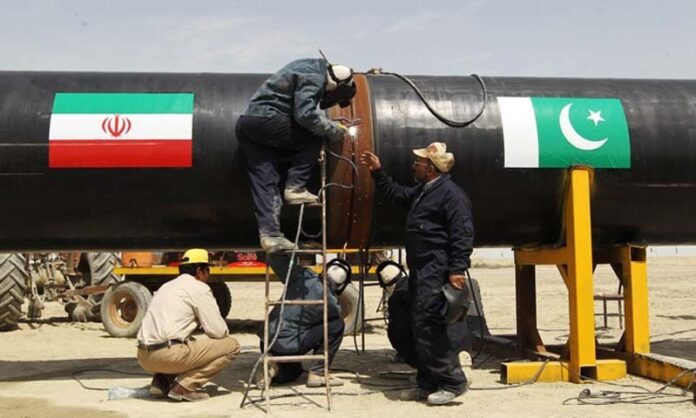The United States has once again issued a warning to Pakistan regarding the potential ramifications of engaging in business deals with Iran, particularly initiating work on the Iran-Pakistan Gas Pipeline Project.
US State Department spokesperson Matthew Miller in a media briefing emphasized that Washington will continue to enforce sanctions against Iran and advised Pakistan to consider the consequences of any such agreements.
Responding to a query about the mega gas pipeline project, Miller said, “We will continue to enforce our sanctions against Iran. And as a matter of course, we also advise anyone considering business deals with Iran to be aware of the potential ramifications of those deals.”
The US official also reiterated that addressing Pakistan’s energy shortages remains a priority for Washington. “At the same time, helping Pakistan address its energy shortage is a priority for the United States, and we continue to discuss energy security with the Government of Pakistan,” Miller added.
The IP gas project has been facing a decade-long delay due to concerns over potential US sanctions. In April 2023, the Ministry of Energy initiated work on the long-delayed pipeline project to complete its 80-kilometer stretch from Gwadar to the Iranian border.
Iran extended a 180-day deadline for Pakistan to meet its obligations, which is set to expire in September 2024. However, Pakistan has yet to make progress on the pipeline.
Read This: Iran issues final notice, warns of legal action over delayed IP Gas Pipeline
Failure to meet the deadline could result in Iran taking the matter to the arbitration court, potentially leading to a penalty of $18 billion against Pakistan.
US official’s remarks came in connection with Iran’s final notice to Pakistan last week. Tehran warned that it will take legal action in the Paris Arbitration Court if Islamabad fails to construct its portion of the gas pipeline by the extended deadline of September 2024.
The Gas Sales Purchase Agreement (GSPA), signed in 2009 under French law, designates the Paris-based arbitration court as the forum for resolving disputes between the two nations. The court does not recognize US sanctions.
In 2019, Pakistan and Iran revised their contract, stipulating that Pakistan would complete its portion of the pipeline by 2024, enabling the intake of 750 million cubic feet of gas from Iran daily.
Tehran had previously issued a legal notice to Pakistan in late 2022, warning of the consequences of further delays.
Under the original agreement, Pakistan was obligated to pay $1 million per day in penalties to Iran starting from January 1, 2015, if the project was not completed. The gas pipeline was supposed to be operational by January 1, 2015, but delays on Pakistan’s side have stalled the project.




